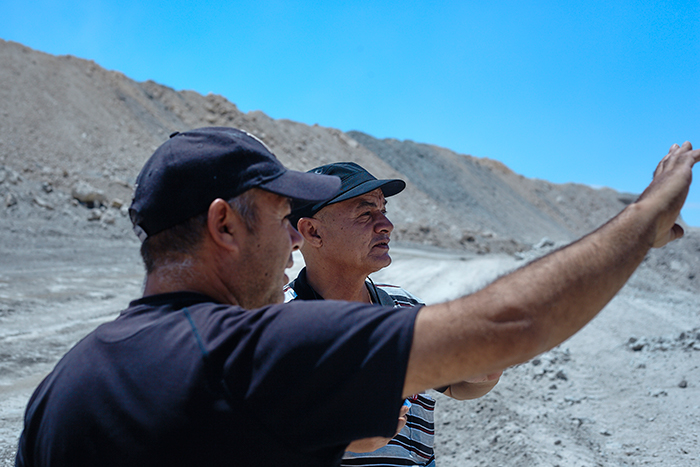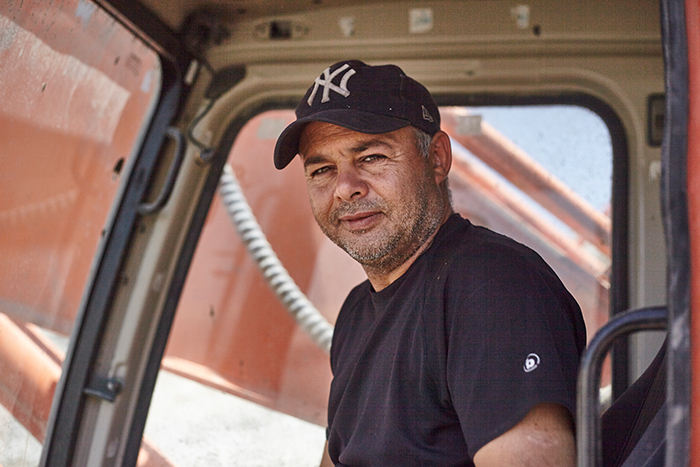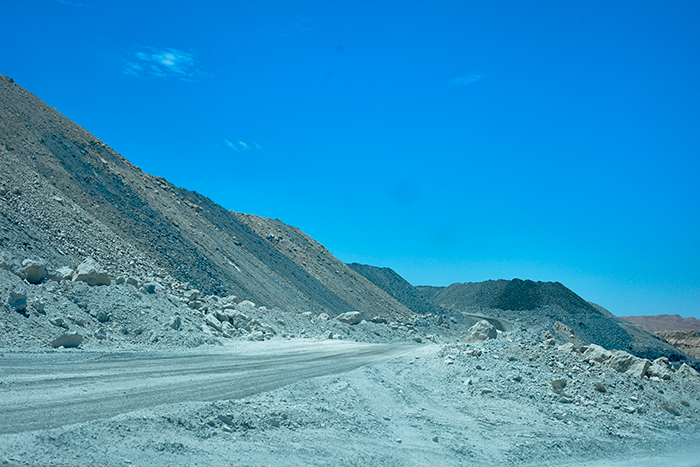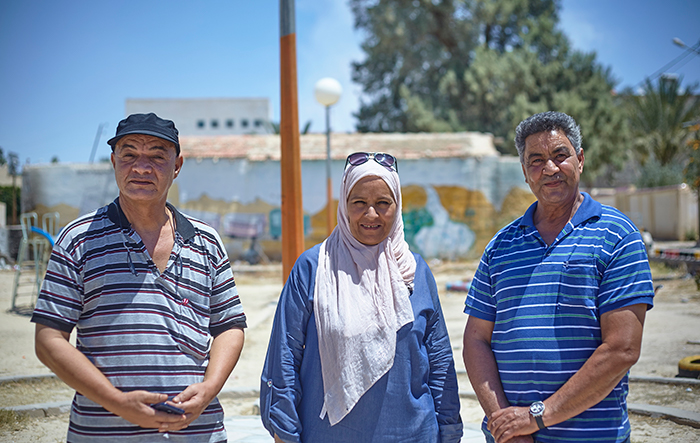This article was published more than 6 years ago.

While Tunisia’s civil resistance-led revolution of 2011 brought hope of increased economic opportunity and positive change, the ability to access basic rights remains a challenge for many of its citizens. At the time, Ahmed, then in his early 20s, was working as a mechanic for a phosphate mining company in the small mining town of Metlaoui.
Soon after the revolution, his role was terminated without warning or justification and he was unable to find other employment. Ahmed felt trapped, knowing he had little recourse against the exploitative business practices that upended his livelihood—a widespread problem that devastates Tunisian communities and hinders their economic development.
Metlaoui and the state-backed company that let Ahmed go are in the Gafsa region, a hotspot for the country’s phosphate mining industry. For workers like Ahmed, phosphate mining provides a rare chance to earn an income; however, the industry has a track record of violating workers’ rights and causing widespread pollution.
Like many of his fellow employees, Ahmed was hired on a temporary basis, granting him limited job security. These short-term work assignments typically pay low wages, offer few benefits such as health coverage or pensions, and allow companies to cyclically hire and later fire workers with full discretion.
That’s where Fund grantee Amal Association for the Environment comes in. As a community association based in Metlaoui, Amal plays a critical role supporting local residents in protecting their environmental and labor rights from the phosphate companies operating in the area. Amal worked closely with Ahmed to get him back on his feet. They gave him guidance regarding his legal rights, created a case for him, and helped him negotiate a new contract.
With their support, Ahmed was able to secure a new, full-time role as a driver transporting phosphate—something he would not have been able to do without an association backing him up. Now 31, he is married with a daughter, owns a house, and remains an active member of Amal. But his story and frustrations are indicative of Tunisia’s progress as a new democracy and its ongoing challenges.

Navigating a fledgling democracy and mining’s legacy
Tunisia, the birthplace of the Arab Spring in 2011, today finds itself both a model of reform and in flux as a society. Its 24-year dictatorship has been replaced with democratic elections and a new constitution. Its leaders and international investors seek economic progress to match these political advancements. However, GDP per capita has dropped nearly $8 billion since 2014, and there is growing social unrest about lack of jobs. To meet these problems, the government has turned to the extractive industries, particularly phosphate. The country seeks to raise phosphate output from 3 to 5 tons annually, placing rural cities such as Metlaoui and its workers’ struggle for their rights at the center of the storm.
Additionally, phosphate, which is used in fertilizer, pharmaceutical products, and detergents, is mined using explosives—a process that comes with significant environmental impact. Its mining can pollute ground water, shrinking the already small amount of drinking water available in rural Tunisia. And byproducts from its washing and transportation can contaminate air and soil.
Regulations around the explosives used, cleaning process, and transport of phosphate exist but are difficult to monitor and are frequently ignored. In Metlaoui, the effects are seen in high rates of cancer and kidney diseases, frequent and long-lasting water shortages, a lack of green spaces, and the residual phosphate powder that regularly coats the interiors of many homes.

“We cannot have social motion without people.”
Fund grantee Amal grew out of dissatisfaction with mining companies’ business practices and a desire by Metlaoui’s people to improve environmental awareness and quality of life. Founded by Zaybi Abdessalem in 2012, Amal functions as a member organization that works with and on behalf of Metlaoui’s 40,000 citizens, providing crucial mediation, legal aid, and education around worker rights and environmental issues.
Going toe-to-toe with the mining industry is difficult work. To achieve their goals, Amal uses several tactics: They increase awareness of environmental problems and existing regulations; ensure that workers have access to financial and legal mechanisms to understand and assert their rights; and conduct research and environmental studies to improve quality of life in the region.

As a member-based organization, Amal also takes a strength in numbers approach and focuses on community organizing. “We cannot have social motion without people,” Zaybi says. With more than 100 members, Amal brings people together to urge mining companies to invest in its workers and improve the city’s environmental conditions. They have organized community meetings on participatory democracy, youth unempoyement, and corruption and corporate accountabilty within the Gafsa phosphate company.
In June 2019, they were part of a regional coalition that organized a march to protest long water supply cuts throughout Gafsa. Amal has also created a new local park and three environmental clubs in primary and secondary schools to teach children about their rights to clean air and water.
Their advocacy and mobilization efforts have yielded results: In 2018 the phosphate company agreed to move the pollution-generated washing process outside of the city by 2020, and compliance with international standards for all phases of mining and processing.
When Zaybi reflects on Amal’s successes and its future, he is optimistic. He hopes that their work will continue to improve Metlaoui’s quality of life, including reducing pollution, and help make the region more attractive to other businesses that will bring more diverse jobs.
He is also grateful to the Fund, which was drawn to support Amal due to its effective model for creating change from the ground up. By providing resources to help the organization cover operating costs, access training, and grow strategically, the Fund helps ensure that people in and beyond Metlaoui can work together to help Tunisia achieve its potential as a strong self-governing nation. Having a partner who shares this vision and determination is vital to founder Zaybi, saying, “I want to live in Tunisia. Democracy means enjoying all our rights, getting all our rights. We want to get the rights granted to us by the law, and we will not abandon any of them.”
Some names have been changed for privacy.


